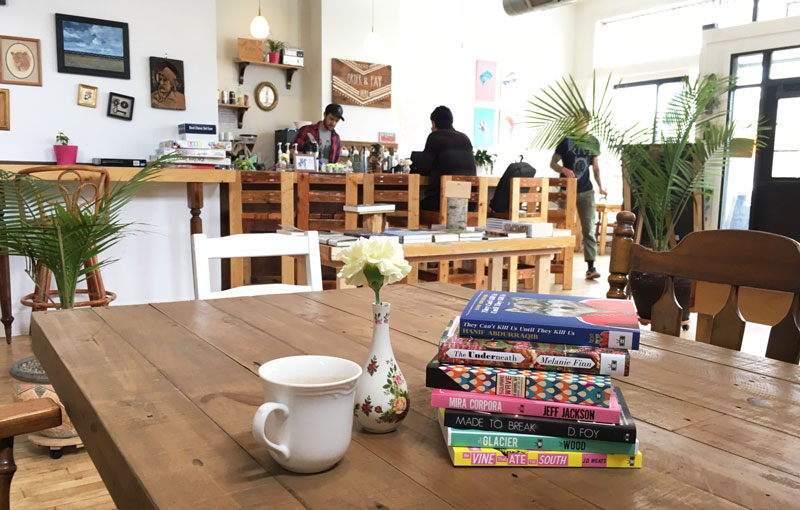- Publisher : Seven Stories Press (November 14, 2023)
- Language : English
- Paperback : 160 pages
- ISBN-10 : 1644213273
- ISBN-13 : 978-1644213278
From the author of the award-winning The Censor’s Notebook, a novel about children whose parents have departed for employment in foreign lands, told through the perspective of a young girl who is responsible for her two brothers.
"Corobca's novel not only reports with tenderness and wit on the pain and patience of abandoned children, it also traces the economic, social and moral decay of the rural milieu with wide awake realism." —Andreas Breitenstein, New Zurich
With her parents gone in search of work, twelve-year-old Cristina must act as a mother to her two younger brothers. Through her eyes, we experience the feeling of wonderment and loneliness as they roam the streets of a contemporary Moldovan village. Her mother has gone to Italy, her father to Siberia, and the children grow up fast, imitating the gestures of the absent adults, and chasing their fading memories of normal family life.
Kinderland is the second novel by Moldovan novelist Liliana Corobca to be translated into English. The first was The Censor’s Notebook (2022), which won the prestigious Oxford-Weidenfeld Translation Prize 2023, remarkably so since it was also the translator, Monica Cure’s, first attempt at a book-length translation. Kinderland showcases Corobca's signature ability to present grimness in a way that is also so full of life and a love of people, and a kind of curiosity that's gentle and forgiving of people's strangeness.
Review
"In this dark fairy tale, livestock and prowling strays coexist with absent adults, rituals, and the wisdom of children. Yet Cristina’s energetic anecdotes evade bleakness, forming a captivating vision of a rural outpost in modern Moldova. Here, survival depends on cleareyed practicality. Amid such trials, the narrow bridge between childhood and adolescence still affords momentary pleasures for which Cristina can be grateful. Kinderland is a literary novel about growing up amid economic decline; in it, a savvy girl lives according to her love for her family." — Foreword
"With a gifted and incisive eye, Corobca ably interweaves the innocent gaze of childhood with the harsh reality of the adult world in this startling, evocative novel about those who are literally and figuratively left behind in the global economy." —Alexandra Kleeman, author of Something New Under the Sun
"What a paradox! Kinderland is a novel about sadness and poverty, but without it European literature would be sadder and poorer." —Filip Florian, author of Little Fingers
"This is such a tender, searching book, that masterfully reveals the complex consciousness of childhood without ever resorting to cliche. A premise that seems dystopian—a land of virtually no adults—turns out to be harrowingly real, but real too are the triumphs and small joys of Cristina and her kin. It's rare for a novel to be both devastating and soft at the same time, but Corobca's astute rendering of youthful longing, along with Cure's deft translation, deserves a special spot in the powerful subgenre I like to think of as True Childhood." —Kristen Iskandrian, author of Motherest
"A truly lovely and needed book. Corobca's voice, is so balanced and unmatched--tender and thrilling, quiet and funny, painful and wonderful—in an excellent translation." —Emily Tarr, bookseller at Thank You Books in Birmingham, Alabama
"Through Cristina, Corobca perfectly conveys a childish sense of wonder and naivety while never letting you forget the precarious fact that these children are all on their own. Her moments of sorrow and loneliness tell the story of the abandoned and the forgotten in a village that could collapse at any moment." —Paul MacKay, King's Co-Op Bookstore in Halifax, Nova Scotia
"Horrifyingly beautiful. It is a touching testimony of self-assertion. Cristina is a Moldovan Pippi Longstocking. In her world, however, being alone is no fun." —Carsten Hueck, Deutschlandradio Kultur
"Corobca's novel not only reports with tenderness and wit on the pain and patience of abandoned children, it also traces the economic, social and moral decay of the rural milieu with wide awake realism." —Andreas Breitenstein, New Zurich
"Liliana Corobca has not only created an impressive heroine, but also a contemporary document that is as moving as it is touching. A contemporary document about the life of children in today's Europe, which stirs up trouble in the heart of the reader and raises many questions." —Mirko Schwanitz, Kulturradio RBB
"Liliana Corobca succeeds in putting the cosmic loneliness of these children into words with her persistent eye for detail, which almost reaches the emotional pain threshold." —Dirk Schümer, Die Welt
“The tone of the narrator, half naive and half precocious, half shaken and half unmoved, is exactly what one would expect from a premature twelve-year-old. ... Corobca's everyday, dry realism fits in with this, the highlight of which are the vivid images." —Hans-Peter Kunisch, Zeit
"In emotional and artful language, Corobca tells a moving story about everyday life as a child in a broken adult world, about outrage, longing, tenderness and anger." —Carsten Hueck, WDR5
"An unsentimental, but tender, wonderful book from our European neighbourhood."
—Cornelia Zetzsche, BR Divan
“The writer masters the text with an enviable accuracy that is extremely well-researched, as if she herself had been in the shoes of her characters. In Kinderland, we meet with the philosophy of life of children from rural areas, the village and all its customs, and find humor and tragedy in equal measures, laughing at the pranks and bungles of the children left on their own, while also crying over their misfortune… Liliana Corobca manages to transmute her ideas with bitter irony. There’s an ease to her writing, but it is powerful… In this novel she successfully combines reality, fiction, love, and the mystical, and constructs passages with a strong emotional charge that comes from gradually accumulated tension, which, once it reaches its peak, simply overwhelms the reader. One of these passages, for example, is the one in which the main characters, three children who are left to take care of themselves, become their own imaginary parents, using their parents’ old clothing; they dress up in them to pretend their wearers had never left home.” —Cătălina Bălan, Observator Cultural
About the Author
LILIANA COROBCA is a writer and researcher of communist censorship in Romania. She was born in the Republic of Moldova and is the author of the novel Negrissimo (2003), winner of the ‘Prometheus’ Prize for debut fiction. She is also the author of the novels The Censor's Notebook (Seven Stories Press, 2022), which won the 2023 Oxford Weidenfeld Translation Prize, A Year in Paradise (2005), Kinderland (2013), and The Old Maids’ Empire (2015). She has received grants and artists’ residencies in Germany, Austria, France, and Poland.
MONICA CURE is a Romanian-American writer, translator, and dialogue specialist, as well as a two-time Fulbright grant award winner. Her poetry and translations have been published in journals internationally, and she’s the author of the book Picturing the Postcard: A New Media Crisis at the Turn of the Century (University of Minnesota Press). Her translation of The Censor's Notebook by Liliana Corobca won the 2023 Oxford Weidenfeld Translation Prize. She is currently based in Bucharest.




